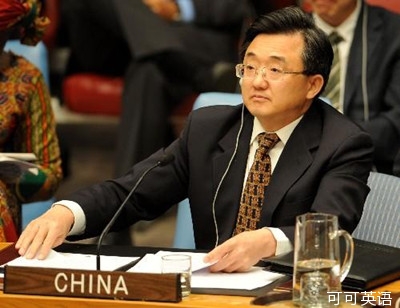亞洲的安全與中國的責任
The Evolving Security Situation in Asia and the Role of China
——外交部副部長劉振民在亞太安全合作理事會第九次大會午餐會上的演講
--Speech by H.E. Vice Foreign Minister Liu Zhenmin at the Luncheon of the 9th CSCAP Conference
北京好苑建國飯店 2013年12月3日
尊敬的馬振崗大使,
尊敬的亞太安全合作理事會(CSCAP)主席Nguyen Thai Yen Huong教授,
尊敬的CSCAP主席Leela K Ponappa大使,
女士們、先生們:
Ambassador Ma Zhengang,
Professor Nguyen Thai Yen Huong and
Ambassador Leela K Ponappa, co-Chairs of CSCAP,
Ladies and gentlemen,
很高興應邀出席亞太安全合作理事會第九次大會。本次會議是 CSCAP首次在華舉辦大會,各方就涉及亞洲乃至世界的重大安全問題交換看法,有助于增進各方的相互理解和信任,為地區更緊密的安全合作獻計獻策。我謹代表中國外交部預祝會議取得圓滿成功。
It’s my great pleasure to join you in the discussions at the 9th CSCAP General Conference, the first such Conference in China. I hope the discussions here on major security issues in Asia and the world will be conducive to greater mutual understanding and trust among countries and closer security cooperation in the region.
On behalf of the Ministry of Foreign Affairs of China, I wish the conference a great success.
我愿借此機會與各位分享對亞洲安全的看法,談一談中國在維護亞洲安全方面所做的工作和應盡的責任。
Today, I would like to share some thoughts on Asian security and the role and responsibility of China.
談到亞洲,最受矚目的是亞洲的經濟活力,亞洲幾乎成為“經濟奇跡”的代名詞。同時,也有輿論認為亞洲國家經濟聯系緊密,但政治關系冷淡,不穩定、不安全的因素增多。如何看待亞洲的安全形勢?亞洲究竟是安全的,還是不安全的?
In people’s minds, Asia is often seen as a dynamic economy. Yet for some people, the close economic relations among Asian countries are not matched by amicable political relations. They even believe instability and insecurity is on the rise in Asia.
How should we view the security situation in Asia? Is Asia secure?
毋庸置疑,冷戰后的亞洲基本保持了和平和穩定,沒有發生大規模沖突。這為亞洲國家積極參與經濟全球化、聚精會神搞建設奠定了堅實基礎,也帶動了地區國家間關系大幅改善。當前,亞洲區域合作方興未艾,自貿區建設、互聯互通等重要領域合作不斷邁出新的步伐,經濟一體化持續加速,已成為世界經濟增長的最大驅動力。這是亞洲當前形勢的主流,也是亞洲未來發展的趨勢。
To be fair, Asia has largely maintained peace and stability for decades after the Cold War. This has served as a solid basis for Asia to focus on economic development. Relations among Asian countries have also improved.
Asia is seeing new progress in regional cooperation. FTA negotiations and connectivity projects are thriving. Economic integration is picking up speed. Asia has become the biggest driving force for global economic growth. War is almost unthinkable. This is the main trend of today’s Asia. This is also the way to go for Asia.
與此同時,亞洲也面臨不少安全挑戰,既有二戰殘余,冷戰積怨,海上和平穩定的“暗礁”等歷史遺留的安全矛盾,更有自然災害、跨國犯罪、網絡安全、能源和糧食安全等日益突出的非傳統安全挑戰。此外,通過強化雙邊軍事同盟尋求個別國家絕對安全的做法依然存在,一些國家間互信赤字仍待彌補。
Having said that, to be frank, Asia is still faced with many security challenges. Legacies of the Second World War and the Cold War, and territorial and maritime disputes continue to affect Asian security.
There are also growing non-traditional security challenges, such as natural disasters, transnational crimes, cyber security, energy and food security. In addition, there are still attempts in our region to seek absolute security through strengthening military alliances. The trust deficit between some countries remains large.
在全球化日益深入發展的今天,各國相互依存日益緊密,一榮俱榮,一損俱損,正成為命運共同體。各國辦好自己的事,就是對地區和平、發展和安全的重大貢獻。我認為,只有開放包容,相互尊重,加強合作,各國才能實現安全與發展的良性循環,攜手營造和諧穩定的安全環境。
As globalization deepens, countries are more closely inter-connected than ever before, becoming a community of common destiny. As a general rule, if every country can manage its own affairs well, that would be a big contribution to regional peace, development and security.
In my humble submission, only with openness, inclusiveness, mutual respect and cooperation can countries achieve security and development, and create a harmonious environment for regional security.
針對已經發生重大變化的世界形勢,上世紀90年代以來,中國在逐步深入參與地區安全合作的進程中,提出了“新安全觀”理念。我們不認同基于零和博弈、武力爭霸、強權政治的舊安全觀,主張各國共同努力,培育以互信、互利、平等、協作為特征的新安全理念,倡導全面安全、合作安全、共同安全。簡言之,就是3C安全觀(Comprehensive security, Cooperative security, Common security)。
China put forward a concept of New Approach to Security in the 1990s. We don’t believe in the old security concept based on zero-sum game, military hegemony and power politics.
Countries should follow a new approach to security based on mutual trust, mutual benefit, equality and collaboration. This can be called the 3C security approach, namely comprehensive security, cooperative security and common security.
全面安全是指安全是全方位的,具有很強的關聯性。安全不僅包括軍事安全,也包括經濟安全、金融安全、糧食安全等。在自然災害、跨國犯罪等綜合性和跨國性安全挑戰面前,任何國家都難以獨善其身,解決這些問題必須綜合施策。
Comprehensive security means that security is multi-faceted and interconnected. It includes not just military security, but also economic security, financial security and food security. Comprehensive challenges require comprehensive solutions. And no country can cope alone.

合作安全是指安全需要通過合作來實現。各方都要平等參與,以和平、合作的方式處理分歧。李克強總理不久前出席東亞峰會時,用“一把筷子捆在一起不容易折斷”的比喻說明合作安全的重要性。每個國家都對地區安全負有責任,都應承擔應有的義務。
Cooperative security means that security should be realized through cooperation and equal participation of all relevant parties. Disputes should be solved in a peaceful and cooperative manner.
At the recent EAS, Premier Li Keqiang used chopsticks as an example to show the importance of cooperative security. He said, one can’t break the chopsticks if you bundle many of them together. His message is that every country has a responsibility for regional security.
共同安全是指安全是所有相關方的共享安全,不能追求一國的絕對安全,或將一國的安全建立在損害他國安全的基礎上。應承認安全關切的多樣性,在實現自身安全利益的同時要認真考慮對方的安全關切。以東北亞為例,東北亞的安全應是涵蓋所有地區國家的安全,應建立讓主要當事國都平等參與的次區域安全機制,否則難以實現真正安全。
Common security means security for all. No country should seek absolute security for itself or its own security at the cost of others. Countries should consider the security concerns of other countries while seeking its own security.
習近平主席在今年博鰲亞洲論壇演講中說到,和平猶如空氣和陽光,受益而不覺,失之則難存。亞洲和平穩定的大環境來之不易,我們應如何維護和促進亞洲的安全?從新安全觀出發,中方主張從以下方面努力實現地區安全。
For instance, true security in Northeast Asia can only be achieved with a sub-regional security mechanism ensuring the security of all relevant countries.
In his address to this year’s Boao Forum for Asia, President Xi Jinping said peace is just like air and sunshine. One hardly notices them, yet none can live without them. The peaceful and stable environment in Asia has not come easily.
What should we do to maintain and promote security in Asia? Following the new security approach, China believes that the efforts should be made in the following areas.
第一,推動地區經濟一體化是維護亞洲安全的重要基礎。發展與安全聯系緊密,相互促進。沒有安全,發展就沒有堅實的基礎。沒有發展,安全就如無本之木。對于很多國家來說,發展就是最大的安全。亞洲在經濟合作方面已有比較完善的框架安排,東盟與對話伙伴(10+1)、東盟與中日韓(10+3)合作等蓬勃開展,“區域全面經濟伙伴關系”(RCEP)、中日韓等自貿區談判不斷推進,金融和互聯互通等合作邁出堅實步伐。我們應繼續推動區域合作深入發展,拉緊各國利益紐帶,為亞洲的共同發展與繁榮不懈努力。
Firstly, promoting regional economic integration is the foundation for Asian security. Development and security are mutually reinforcing. We cannot achieve one without the other. For many countries, development is also the biggest security interest.
Asia has a sound framework for economic cooperation. we have 10+1 and 10+3 cooperation. RCEP and China-Japan-Korea FTA negotiations are making progress. We should continue to strengthen the bond of shared interests among countries through regional cooperation, and make efforts for the common development and prosperity of Asia.
第二,大國良性互動是維護亞洲安全的根本保障。大國如何相處對維護地區和平與發展至關重要。大國應客觀理性看待對方戰略意圖,拋棄冷戰思維,相互尊重對方利益和關切,合作應對全球挑戰。這是地區國家的期待,也是大國的責任。
Secondly, good relations among major countries are a crucial factor for Asian security. They should be rational in judging each other’s strategic motives, respect each other’s interests and concerns, and work together to tackle global challenges.
第三,完善現有地區多邊機制是維護亞洲安全的重要途徑。我們應堅持多邊主義,反對單邊主義,東盟地區論壇、東盟防長擴大會、東亞峰會等機制包容性強,在推動非傳統安全務實合作方面取得了不少積極成果,日益受到各方重視與認可,應不斷完善自身機制建設,在推動地區非傳統安全合作方面發揮更大作用。
Thirdly, existing regional mechanisms provides an important channel for promoting Asian security. We should adhere to multilateralism and oppose unilateralism. Regional mechanisms such as ARF, ADMM Plus and EAS are highly active and inclusive. They should play a bigger role in promoting regional non-traditional security cooperation.











